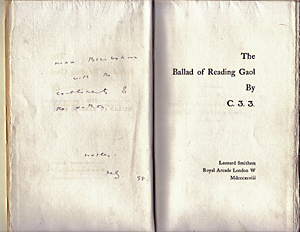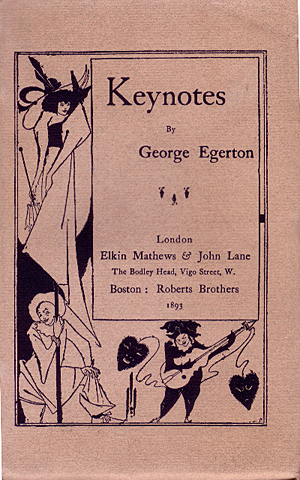

- Rozovsky wins prestigious NSF Early Career Award
- UD students meet alumni, experience 'closing bell' at NYSE
- Newark Police seek assistance in identifying suspects in robbery
- Rivlin says bipartisan budget action, stronger budget rules key to reversing debt
- Stink bugs shouldn't pose problem until late summer
- Gao to honor Placido Domingo in Washington performance
- Adopt-A-Highway project keeps Lewes road clean
- WVUD's Radiothon fundraiser runs April 1-10
- W.D. Snodgrass Symposium to honor Pulitzer winner
- New guide helps cancer patients manage symptoms
- UD in the News, March 25, 2011
- For the Record, March 25, 2011
- Public opinion expert discusses world views of U.S. in Global Agenda series
- Congressional delegation, dean laud Center for Community Research and Service program
- Center for Political Communication sets symposium on politics, entertainment
- Students work to raise funds, awareness of domestic violence
- Equestrian team wins regional championship in Western riding
- Markell, Harker stress importance of agriculture to Delaware's economy
- Carol A. Ammon MBA Case Competition winners announced
- Prof presents blood-clotting studies at Gordon Research Conference
- Sexual Assault Awareness Month events, programs announced
- Stay connected with Sea Grant, CEOE e-newsletter
- A message to UD regarding the tragedy in Japan
- More News >>
- March 31-May 14: REP stages Neil Simon's 'The Good Doctor'
- April 2: Newark plans annual 'wine and dine'
- April 5: Expert perspective on U.S. health care
- April 5: Comedian Ace Guillen to visit Scrounge
- April 6, May 4: School of Nursing sponsors research lecture series
- April 6-May 4: Confucius Institute presents Chinese Film Series on Wednesdays
- April 6: IPCC's Pachauri to discuss sustainable development in DENIN Dialogue Series
- April 7: 'WVUDstock' radiothon concert announced
- April 8: English Language Institute presents 'Arts in Translation'
- April 9: Green and Healthy Living Expo planned at The Bob
- April 9: Center for Political Communication to host Onion editor
- April 10: Alumni Easter Egg-stravaganza planned
- April 11: CDS session to focus on visual assistive technologies
- April 12: T.J. Stiles to speak at UDLA annual dinner
- April 15, 16: Annual UD push lawnmower tune-up scheduled
- April 15, 16: Master Players series presents iMusic 4, China Magpie
- April 15, 16: Delaware Symphony, UD chorus to perform Mahler work
- April 18: Former NFL Coach Bill Cowher featured in UD Speaks
- April 21-24: Sesame Street Live brings Elmo and friends to The Bob
- April 30: Save the date for Ag Day 2011 at UD
- April 30: Symposium to consider 'Frontiers at the Chemistry-Biology Interface'
- April 30-May 1: Relay for Life set at Delaware Field House
- May 4: Delaware Membrane Protein Symposium announced
- May 5: Northwestern University's Leon Keer to deliver Kerr lecture
- May 7: Women's volleyball team to host second annual Spring Fling
- Through May 3: SPPA announces speakers for 10th annual lecture series
- Through May 4: Global Agenda sees U.S. through others' eyes; World Bank president to speak
- Through May 4: 'Research on Race, Ethnicity, Culture' topic of series
- Through May 9: Black American Studies announces lecture series
- Through May 11: 'Challenges in Jewish Culture' lecture series announced
- Through May 11: Area Studies research featured in speaker series
- Through June 5: 'Andy Warhol: Behind the Camera' on view in Old College Gallery
- Through July 15: 'Bodyscapes' on view at Mechanical Hall Gallery
- More What's Happening >>
- UD calendar >>
- Middle States evaluation team on campus April 5
- Phipps named HR Liaison of the Quarter
- Senior wins iPad for participating in assessment study
- April 19: Procurement Services schedules information sessions
- UD Bookstore announces spring break hours
- HealthyU Wellness Program encourages employees to 'Step into Spring'
- April 8-29: Faculty roundtable series considers student engagement
- GRE is changing; learn more at April 15 info session
- April 30: UD Evening with Blue Rocks set for employees
- Morris Library to be open 24/7 during final exams
- More Campus FYI >>
3:49 p.m., Aug. 10, 2009----This summer, the National Endowment for the Humanities supported a seminar on “The Decadent 1890s: English Literary Culture and the Fin de Siècle,” and two special guests came from the University of Delaware.
Organized by Joseph Bristow, a professor of English at the University of California at Los Angeles, the seminar was designed for a group of college-level faculty from all over the country and Canada and was held at UCLA's William Andrews Clark Memorial Library.
Margaret Stetz, Mae and Robert Carter Professor of Women's Studies and Professor of Humanities, and Mark Samuels Lasner, senior research fellow at the University of Delaware Library, were the only two scholars invited to lecture to the group.
“We were honored to be asked to speak and to take part in the seminar,” Stetz said of their talks on July 20.
Samuels Lasner's talk was entitled “Oscar Gives Himself Away: Reading Wilde's Presentation Copies.” Samuels Lasner has assembled a major collection of British literature and art from 1850-1900: the Mark Samuels Lasner Collection, which is housed in UD's Morris Library and includes the largest privately owned group of Wilde's presentation copies - books that he gave to others.
The books were inscribed to authors, artists, actresses, family members, lovers and friends. In his talk, Samuels Lasner pointed out that some books were given for self-promotion, others to influence those in the theatre, many as thank you gifts and several to the people he most cared about, including his wife, Constance, his mother, and his lover, Lord Alfred Douglas.
“Wilde also cherished books that were given to him,” Samuels Lasner said. “The inscriptions provide valuable insights into Wilde's life, but not much attention has been paid to them, although bibliographies have used these presentation copies to identify editions and dates and also to detect forgeries.”
Stetz's lecture was entitled “George Egerton's Keynotes.” An Irish feminist and author, Egerton (Mary Chavelita Dunne) lived a wild, unconventional life, according to Stetz, with a succession of lovers and husbands.
In her talk, Stetz compared Egerton's original manuscript of Keynotes (1893), a group of short stories, with the published version, which was highly successful and is once more being studied as an example of feminist literature of the late 19th century. The stories were arranged by Egerton as a kind autobiographical narrative of her life but were rearranged by the publisher with the most sensational story as the first one, creating a different focus so that each story stood alone. Changing the order “contributed greatly to the volume's success and that success pleased the publisher and author alike, as both were desperate for financial stability and for professional advancement,” Stetz said in her lecture. Today, however, looking at the author's original idea for the volume can restore the book's power as a unique account of one Victorian woman's struggle for autonomy.
In addition to the lectures, Samuels Lasner and Stetz talked to the seminar participants about research materials available at UD's library, new ways of teaching and possible new research projects in literary history.
Stetz is currently working on editing a digitalized version of Egerton's Fantasias for Rice University Press. Samuels Lasner is scheduled to participate in a symposium, “Books in Hard Times,” to be held at the Grolier Club in New York in September; his message is that this difficult economic period is actually a great time to collect books.
Article by Sue Moncure


